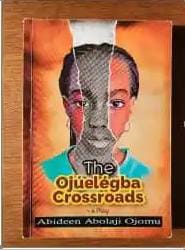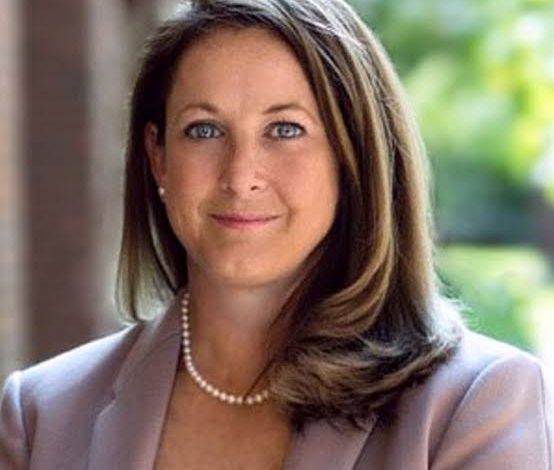Ojomu’s ‘The Ojuelegba Crossroads’: Chronicling a nation, continent on the brink

By Anote Ajeluorou
SUFFUSED with characters living on society’s fringe in a country daily being propelled to the dangerous precipice by her political actors, Abideen Abolaji Ojomu’s The Ojuelegba Crossroads (Flag Publication, Lagos, 2022) is a fitting commentary on Nigeria’s current dire socio-political conditions. Ojomu’s choice of the famous Ojuelegba crossroad as a symbol of confusion, chaos, and anarchy aptly captures a Nigerian polity that has gone mad almost on all fronts, where order has taken a flight, and chaos is the only currency of operation.
A mishmash of characters like a corrupt politician and a man who spends 21 years in jail for taking shelter in his palatial bed for one night, a governor with whom he’s plotting to fleece the state, a Lagos’ ubiquitous food and drink-seller, who dishes out food, drinks, gossip and mother advice in equal measure, a sports betting operator and his luck and wealth-seeking clients, a retired lecturer and former political adviser who has fallen into hard times and living in a cardboard hole, a soldier who more or less supervised the liquidation of his colleagues by a 13-year old girl but who gets a national medal for heroism; a man who’s taken to court by a politician for plucking from a mango tree that leans into his compound, and other disparate individuals seeking redemption of some sort.
This is the colourful character portrait in Ojomu’s complex and convoluting play. It poignantly mirrors Nigerian society in its lack of order in a dense dramatic interpretation that deplores an interplay of poetic and prose rendering. Alatupa is taken to court by his rich neighbour, Senator Gwewiri, because he dared to pluck mangoes from the tree that leans heavily into his compound and which leaves make a mess of his premises everyday. Is he justified in plucking the mangoes without consulting the tree owner? In an uncharacteristic manner and ironic twist that’s totally at variance with Nigeria’s daily reality, where the big man is always right, the court gives verdict in the poor man’s favour. Does this point to the redemptive possibility even a chaotic society is capable of achieving when courageous persons mount leadership positions?
But in response, Senator snatches Alatupa’s wife Ronke, whose quest for the vain life propels her towards the ill-gotten wealth of Senator Gwewiri. But she later sees through the senator after he lavishes riches on Ronke by sending her to Dubai to wash away the filth poverty with Alatupa had inflicted on her. After returning from her exotic trip to purge her of her past ties with poverty, she retraces her steps back to her husband who, in spite of his poverty, had begun to make unusual gains on the Senator and his conniving governor. They are determined to make Alatupa’s modest property headquarters of their political party. But again, the law comes to the aide of poor Alatupa to thwart the Senator’s wicked scheming to dispossess him of his modest property.

Of course, there’s Femi, a reprobate individual who was sent abroad for studies, but who made a mess of it and returns without any degrees to his name. Instead, he turns on his father’s young wife, to his father’s horror. But the old man is ready to forgive his wayward son, but Femi believes he’s way beyond redemption and would rather not come close to his dying father for forgiveness and bless. He’d rather be damned than receive salvation for his reprobate soul. And so it’s Femi’s questioning mind that distrusts everything that becomes the only anchorage for a society headed for the precipice. Femi becomes the saving grace as he stands between a girl and the mob intent on setting her aflame for a petty crime, and like Jesus Christ, he asks any among the mob without a crime to be the first to cast a stone at her. The mob slinks away in crying shame when Femi shows it just how much their so-called beloved men of ‘God’ fleece them of their hard earned money and travel abroad to build earthly paradise for themselves while the swooning congregation wallows in abject poverty. He points out to why it’s hard to choose between men of ‘God’ and politicians, which set is more debased in dehumanising the people in their deceit, both of political and heavenly promises that never get to the people after all!
Ojuelegba, of course, approximates a no-man’s land where disorder reigns supreme, and is synonymous with Nigeria’s current socio-political situation. Ojuelegba is a human jungle, just as Nigeria has ironically turned out to be. But it’s also an intersection for the ancestors, where man ought to take his pleas before the court of the ancients and relearn the old ways that out to take man back to his original path of redemption. Who will rein in this state-sanctioned disorder? This seems to be the underlying question the playwright Ojomu is asking? Because it’s ultimately not sustainable to continue in such brutish state that lacks in all forms of refinement or humane qualities and value.
Order. Law. Only an institution such as the judiciary is capable of bringing about needed order that law enforces on all individuals living in any society. A society lacking laws and their strict enforcement is ultimately a jungle where life is brutish and bereft of any development.
Ojomu’s The Ojuelegba Crossroads, although deploying a complex language and dense imageries, manages to unravel the complex wounds the Nigerian society has inflicted on itself, but ultimately, it comes to understand that the language of law and order is what invariably pays in any society, Nigeria particularly. Senator Gwewiri and his thieving governor accomplice are vanquished by the law that remains unrelenting in insisting on what is right and ensuring that it is done. Not even the enormous powers the duo wields stop the law from taking its course. Ojomu therefore replots the way back to a path his country has long abandoned for an alien one that has damaged her health almost irretrievably. But Ojomu shows faith in the judiciary in his dramaturgy. This is indeed a brave stand in an era where the power of the ballot has been weakened for the ascendancy of the judiciary which now determines the outcomes of national and state elections. Will the judiciary stand Ojomu’s test of faith? Only the future can tell.



